The lymphatic system is an essential part of the immune system. It works to maintain fluid balance by absorbing fats and fat-soluble nutrients and getting rid of cellular waste. It’s often referred to as the body’s “sewerage system,” as it collects and drains excess interstitial fluid away from the tissues.
Supporting a healthy lymphatic system is critical because failure to drain excess fluid causes swelling and other serious health problems. Fortunately, many herbs are effective in promoting lymphatic detoxification and circulation. These herbs can help promote and improve the function of the lymphatic system. Herbs are a natural and safe way to detoxify your lymphatic system and allow it to function properly.
This report will talk about the best herbs good for your lymphatic system. We’ll go through how these herbs work and the best ways to consume them.
Factors That Affect The Lymphatic System


Several factors affect the proper functioning of the lymphatic system. We’ll explain some of the top factors below.
1. Infection
Lymphadenitis, or the enlargement in one or more lymph nodes, is usually due to infection. When your lymph nodes are swollen, it often means that your body is trying to fight off harmful pathogens such as streptococcus or staphylococcus and viruses and fungi.
Lymph nodes are supposed to help you fight off infections. When it gets swollen, it makes it difficult for your body to fight off pathogens. Thus, the infection spreads and weakens the body.
2. Swelling
When the lymphatic system fails to drain excess fluid, it usually accumulates, causing tissue swelling. This condition is called lymphedema and usually occurs in the chest wall, abdomen, neck, and genitals. Lymphedema is often common during cancer treatments, Lyme disease, tuberculosis, and others.
3. Weak Immune System
Since the lymphatic system is part of the immune system, any changes to our immunity can affect our lymph nodes. An immunocompromised person is more susceptible to infection, resulting in lymph node swelling.
When the lymph nodes fail to function properly, you become more susceptible to illness. This becomes a cycle of infection, and the way to recover is to boost our immune system. Taking care of our lymphatic system is just as important as boosting our immune system.
4. Dehydration
The lymphatic system is 96% composed of water. Thus, water is important in the production and circulation of lymph fluid. When you don’t drink enough water, your lymph fluid thickens and reduces its ability to flow freely throughout your body.
Dehydration means less fluid is produced for lymphatic drainage and the transport of antibodies. This can result in inflammation, causing a buildup of lymph fluid, turning into edema.
How Can Herbs Support & Boost The Lymphatic System
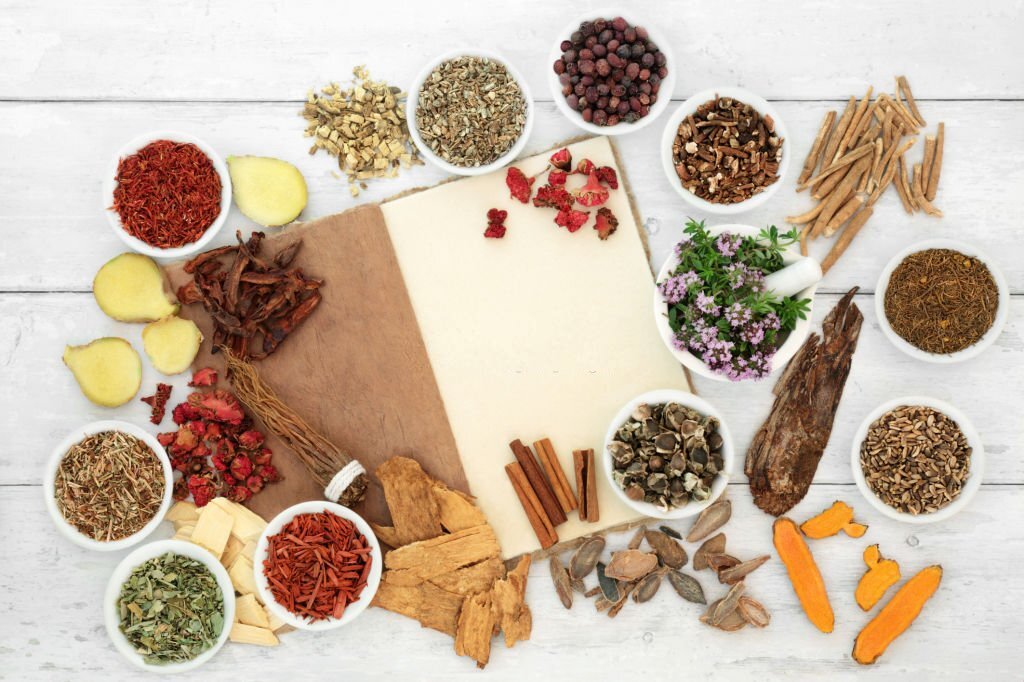

Herbs work in several ways to boost our lymphatic system. Many herbs support the lymphatic system by strengthening the immune system. Herbs contain antibacterial and antimicrobial properties that help protect the lymph nodes against infection.
Some adaptogenic and diuretic herbs also work to promote the proper function of lymphatic drainage or the process of removing excess fluids (called lymph) from tissues and cells. It helps remove waste and toxins while returning nutrients into the bloodstream. Herbs are also known for their potent antioxidant properties. This property helps reduce your risk for lymphangitis, the inflammation of the lymphatic system often characterized by swollen lymph nodes.
Below, you’ll find detailed information on how herbs can aid lymphatic system function.
The 10 Best Herbs That Can Boost The Lymphatic System
We listed below the 10 best herbs for lymphatic system to improve drainage and boost your immunity.
- Goldenseal
- Echinacea
- Astragalus
- Calendula
- Dandelion
- Burdock Root
- Red Clover
- Ceanothus
- Parsley
- Cleavers
1. Goldenseal
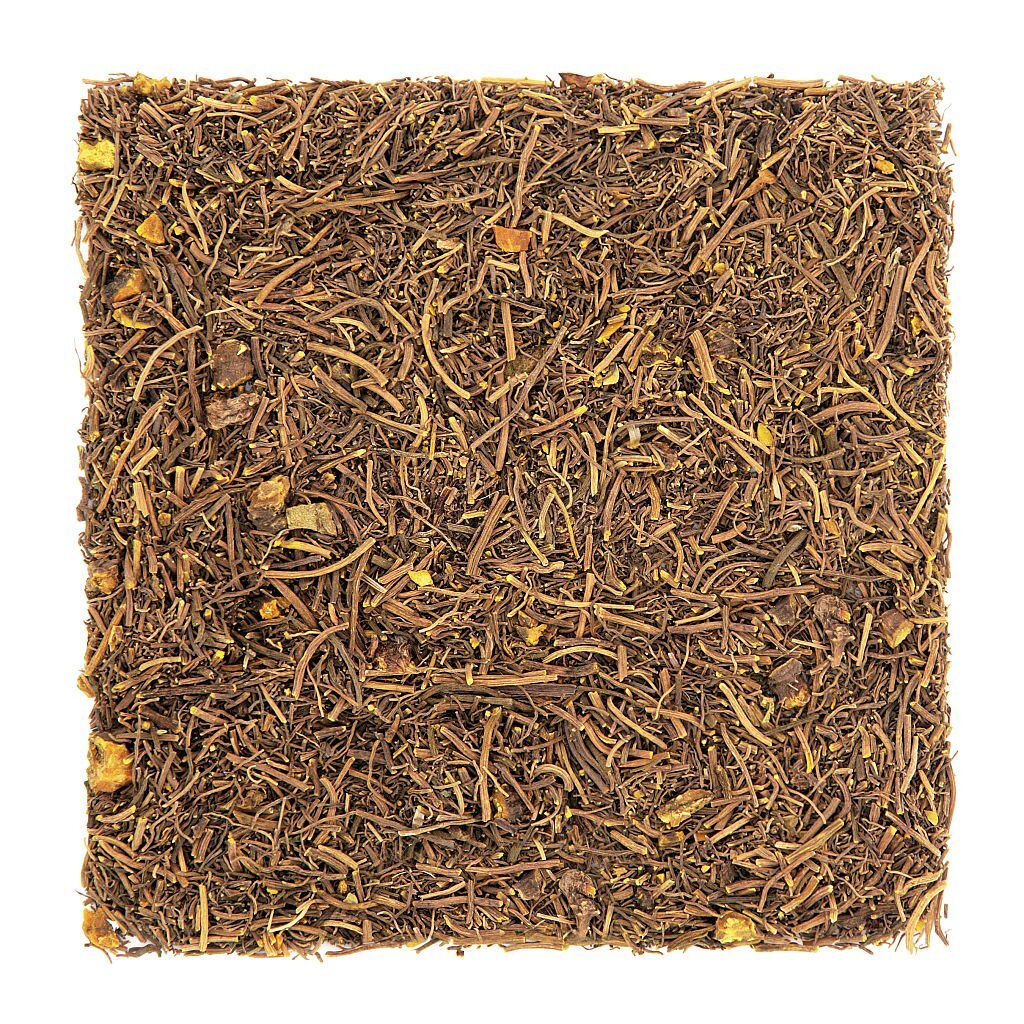

Goldenseal contains berberine, a bitter-tasting chemical effective against bacteria and fungi. Berberine is also a potent anti-inflammatory agent that effectively promotes lymphatic drainage, the moving of excess fluid from the tissues. This results in proper blood circulation, body fluid balance, and improved immune functions.1
Goldenseal root is available in powdered, capsule, or pill form. It should only be used for a short period of time and not for long-term maintenance.
2. Echinacea
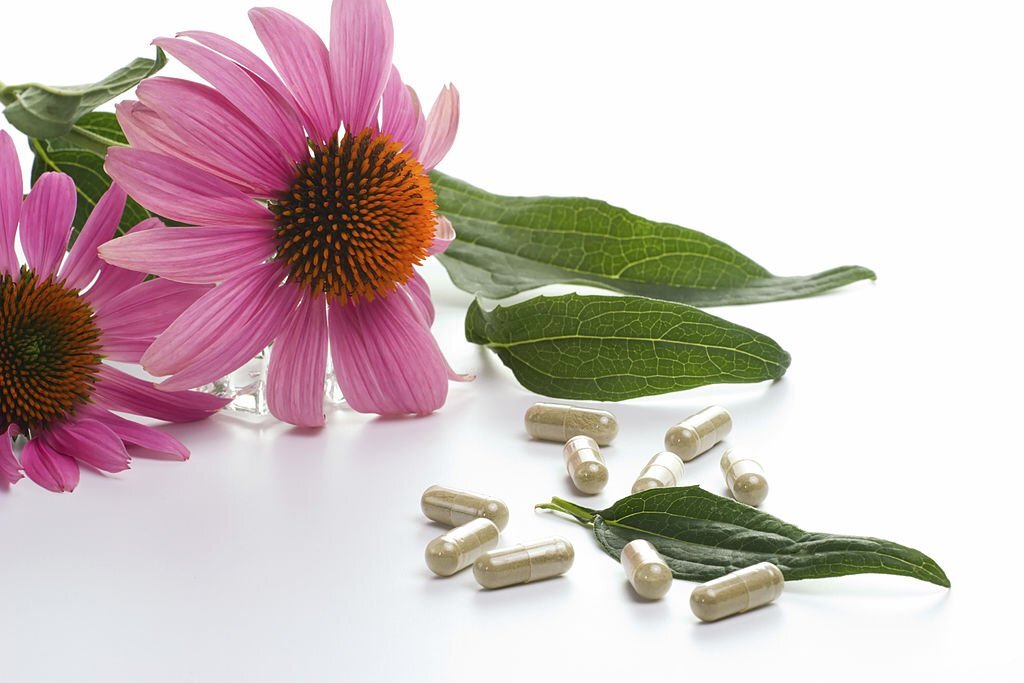

Echinacea is an immune stimulant, which means it stimulates the immune system to fight infections more effectively. It contains alkylamine, a phytochemical that increases the production of macrophages and lymphocytes. Both cells combat infection by killing bacteria, reducing inflammation and pain, and promoting lymphatic drainage. 2
Echinacea is a popular supplement in the US, available in pills, capsules, powder form, dried herbs, or extracts. Many herbalists combine echinacea and astragalus in tea to maximize their effect on the lymphatic system.
3. Astragalus
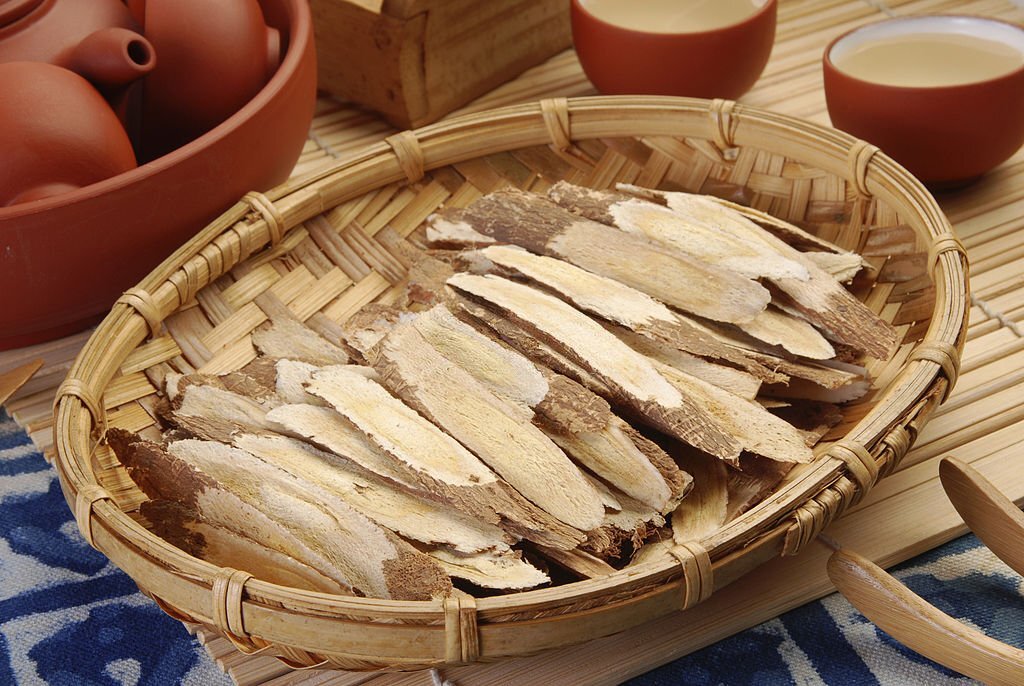

Astragalus helps cleanse and heal infected lymph nodes by easing swelling and congestion. It’s an adaptogenic herb, meaning it can remove free radicals and stressors, whether physical, chemical, or biological. It has been used in Chinese traditional medicine to treat swelling and boost the immune system.
Astragalus and echinacea work well together in a warm cup of tea. Astragalus root supplements can be found as a capsule or liquid extract. Placing a cold astragalus tea bag over a swollen area may make the vessels constrict and help reduce swelling.
4. Calendula
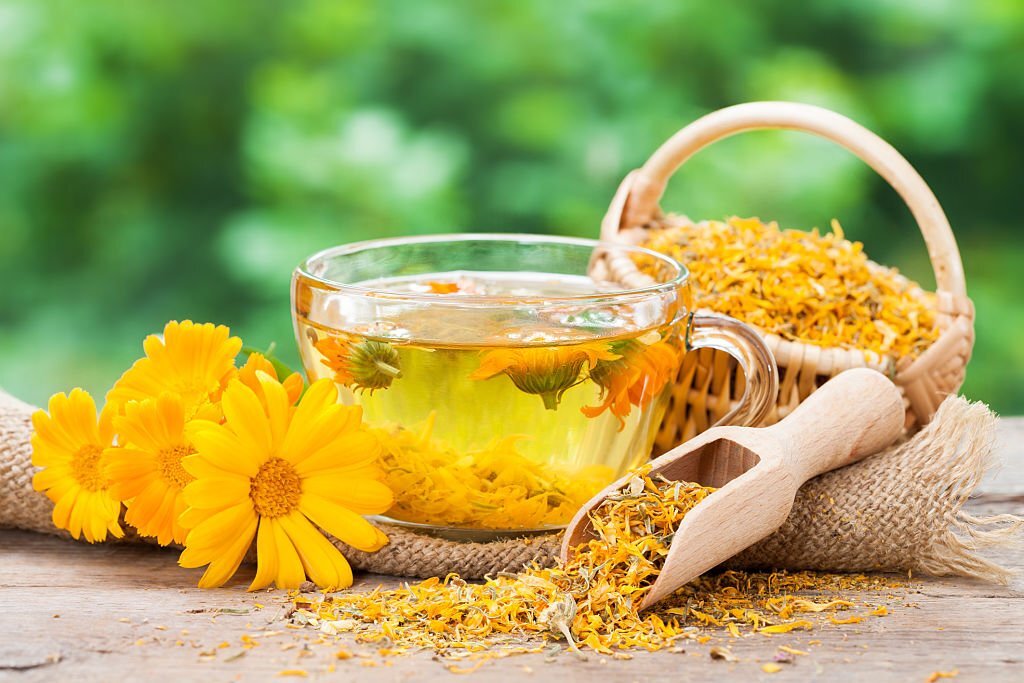

Calendula is another popular lymphatic herb. It contains saponins and flavonoids, potent antioxidants that are effective against swelling and promote cleansing.
Calendula improves and cleanses the lymphatic drainage, getting rid of accumulated metabolic waste from old infections. This process is especially beneficial for stagnant lymphatic conditions such as swollen glands, cysts in the breast and pelvic area, and intestinal bloating.3
Aside from tea, you can make a calendula warm compress and apply it to the swollen area. To make calendula into a warm compress, simply boil fresh or dried calendula flowers in a pot of water. Once ready, steep until cool. Soak a towel in cool calendula water and apply it to the affected area.
5. Dandelion
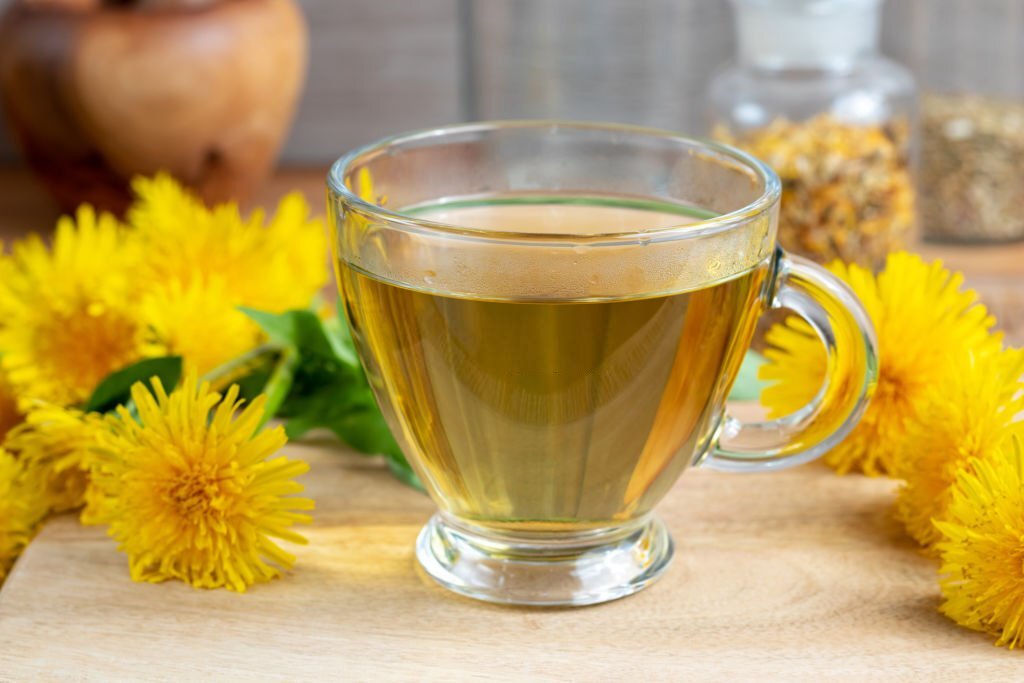

Dandelion is a popular diuretic in alternative medicine. It promotes urination, which helps remove toxins and waste from the body. As a detoxifying and purifying agent, it’s great for cleansing the lymph system of accumulated metabolites and toxic waste. Studies show it works well in reducing the swelling of the lymph nodes in the neck.4
The best way to take dandelion for swollen lymph nodes is to turn the dandelion root into a tea. Simply boil dried dandelion roots in a pan with water. Let it steep for 3 minutes, strain, and enjoy. You can add honey to improve the taste.
6. Burdock Root
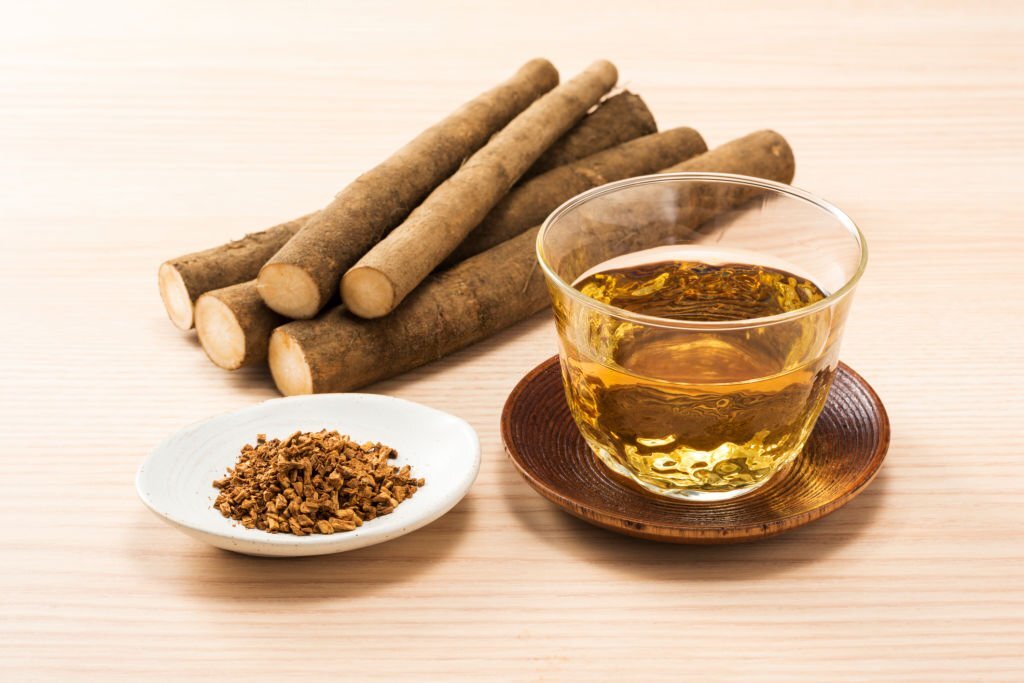

Burdock is considered one of the best lymphatic herbs in alternative medicine. It contains potent antioxidants like lignans and flavonoids that promote cleansing and stimulate lymphatic drainage. They are also considered “blood cleaners” because they alter the composition of blood and lymph fluid, making it easier for the lymphatic system to detoxify and eliminate waste.5
To help cleanse your lymphatic system, enjoy several cups of burdock tea a day.
7. Red Clover
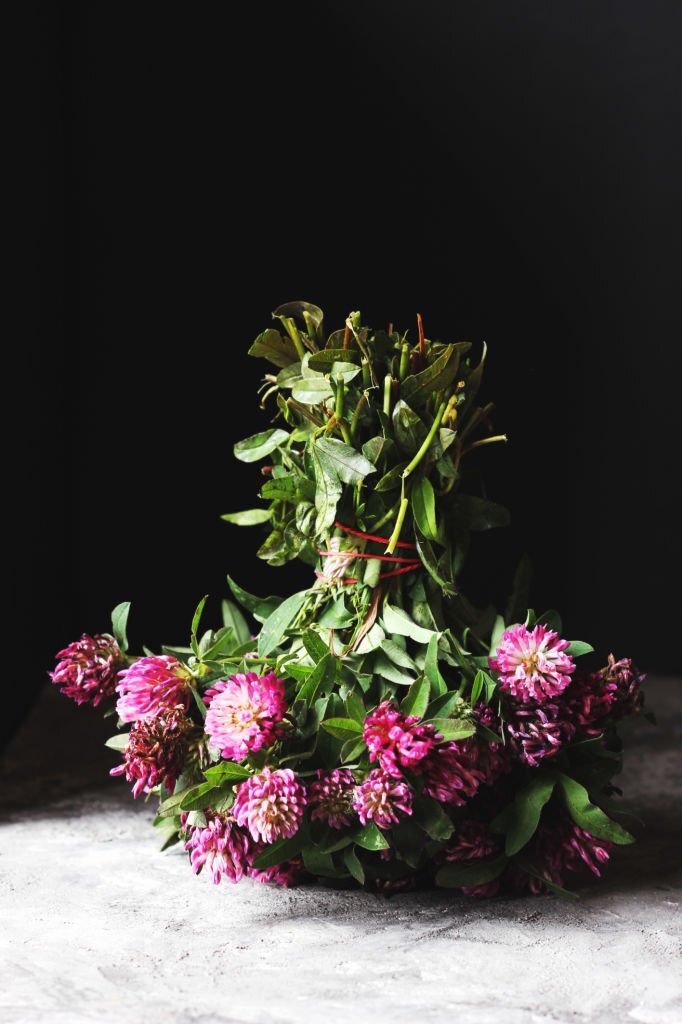

Red clover is another popular lymphatic herb. It has anti-inflammatory and antioxidant properties from anthocyanins, which help the lymphatic system get rid of toxins and waste from tissues. Like burdock, it’s an anticoagulant that improves the quality of blood and lymph fluid that aids in detoxification.6
Herbalists prefer to use red clover as tea or orally via a low-dose tincture.
8. Ceanothus
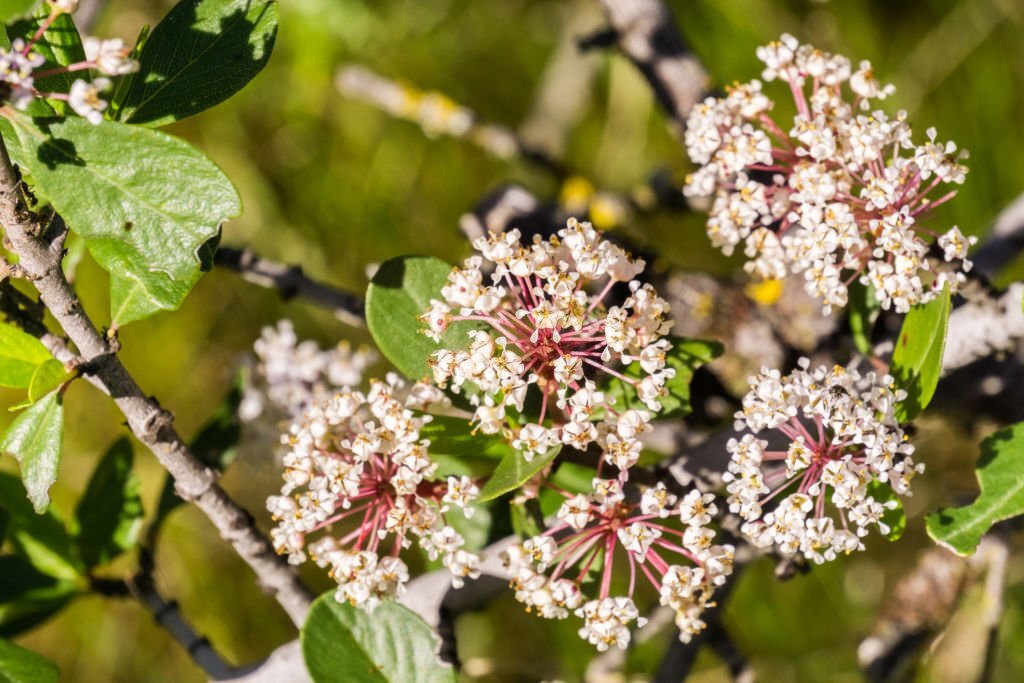

Ceanothus or Red Root is a popular choice by herbalists in treating lymphedema, or the swelling of body parts due to accumulated lymph fluid. It’s particularly beneficial for chronically swollen and congested lymph nodes, especially for immunocompromised individuals or those who have experienced prolonged sickness. It contains many active compounds such as tannins and alkaloids that can shrink enlarged lymph nodes and non-fibrous cysts.
Red root is often enjoyed as a refreshing tonic because it can be very bitter. To make an herb tonic, boil the red root in a pot and let it steep for 20 minutes. Strain the liquid into a glass. You can add ice, honey, or a squeeze of lemon to enhance the taste.
9. Parsley
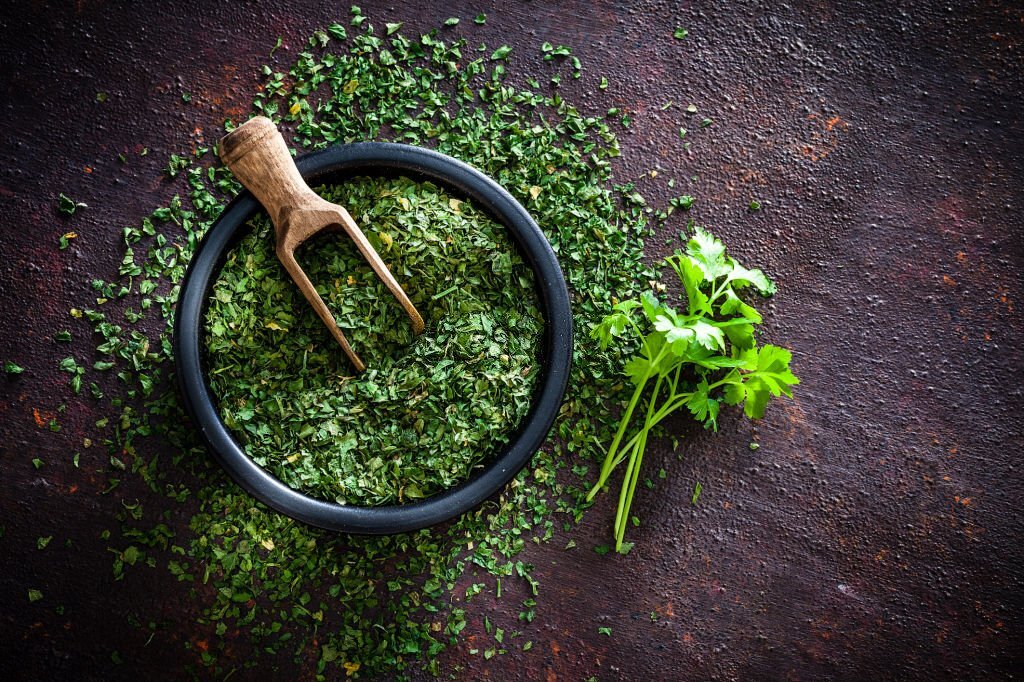

Parsley is another diuretic herb that promotes urination, flushes excess toxins in the body, and decongests lymph nodes. This herb is also rich in vitamin K, a fat-soluble vitamin that’s easily absorbed by the intestinal lymph nodes. Studies show that vitamin K can reduce your risk of lymph cancer or lymphoma by inhibiting inflammatory cytokines. It can also protect you against non-Hodgkin’s lymphoma.7 8
Parsley is a common cooking ingredient that can be used in various dishes such as pasta, soups, salads, and so on.
10. Cleavers
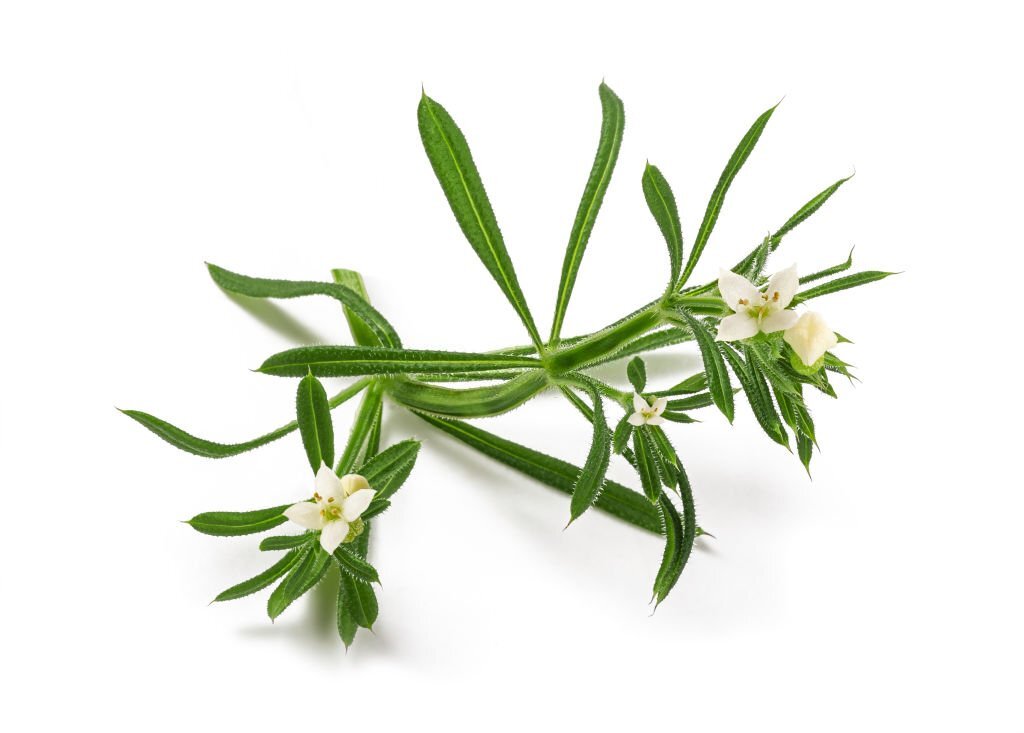

Cleavers is another wonder herb for the lymphatic system. It supports the immune system and has a diuretic, antispasmodic, and anti-inflammatory effect that works against the inflammation of lymph nodes. It’s particularly effective for swollen glands like tonsils, armpits, breasts, and groins. This herb is commonly used to treat lymphatic stagnation, which occurs when the lymphatic system slows down due to a weakened immune system or becomes clogged with toxins and fatty deposits.9
To maximize the benefits of cleavers for your lymphatic system, take it as a low-dose tincture or at least three cups of tea daily.
Other Home Remedies for Boosting the Lymphatic System


There are other remedies you can try at home to help improve the circulation and function of your lymphatic system. Here are some:
1. Hydrate Daily With Water
Dehydration is one of the main factors that impede the proper functioning of the lymphatic system. Drinking enough water reduces water retention, which is a cause of lymphedema, or the swelling of a body part due to the accumulation of lymph fluid.
2. Lymphatic Drainage Massage
Lymphatic drainage massage is a gentle massage technique that promotes the movement of lymph fluids throughout the body. It’s often used to treat lymphedema and can be beneficial to those with lymphatic buildups, like breast cancer patients.
3. Healthy Lifestyle With Exercise
A sedentary lifestyle and unhealthy habits can disrupt the proper functioning of your lymphatic system. Keeping a nutrient-rich diet can help with lymphatic detoxification. Exercise will also help maintain proper blood and lymph fluid circulation throughout the rest of the body.
In Short
There you go! I hope this list is helpful to you as you find natural ways to keep your lymphatic system functioning properly. Herbs contain antioxidants, antimicrobial, and anti-inflammatory agents that can help keep your lymph nodes healthy and functioning properly. Meanwhile, some herbs contain potent phytochemicals that can reduce lymph node swelling and treat other serious health conditions such as lymphoma.
So, the next time you feel bloated, see swelling in certain areas of your body, or notice other signs of a sluggish lymphatic system, grab these herbs and give them a try!
Herbs can help you for a wide range of conditions so feel free to read these blog posts too:
- Best Herbs For Blood Circulation
- Best Herbs For Eczema
- Best Herbs For Skin Regeneration
- Best Herbs For Hormone Balance
- Best Herbs For Adrenal Fatigue
References:


